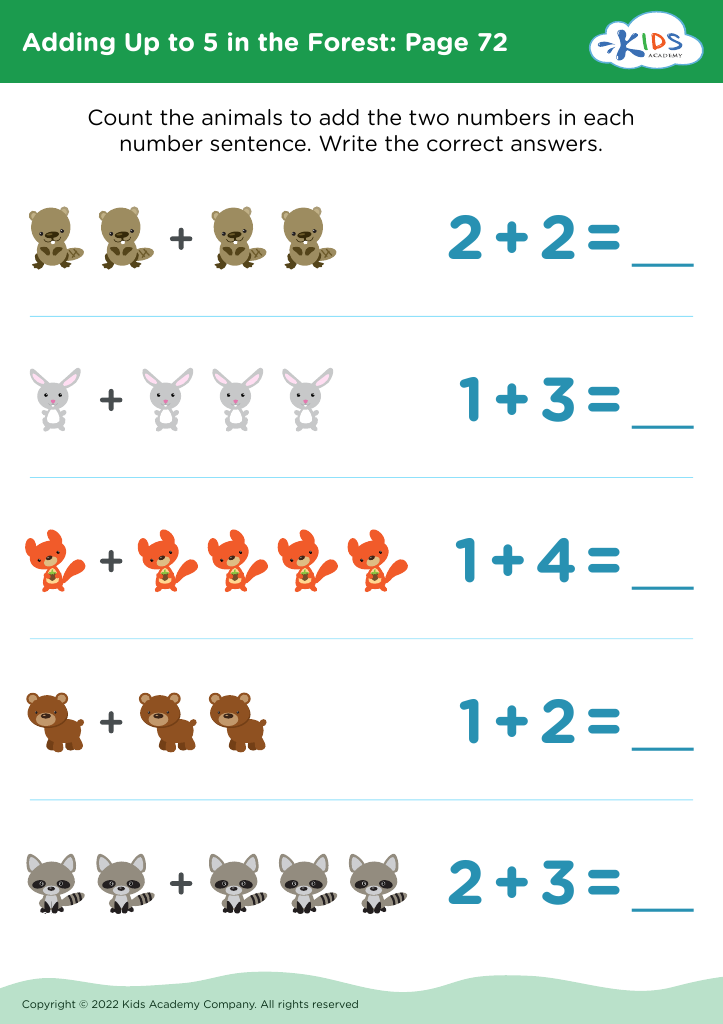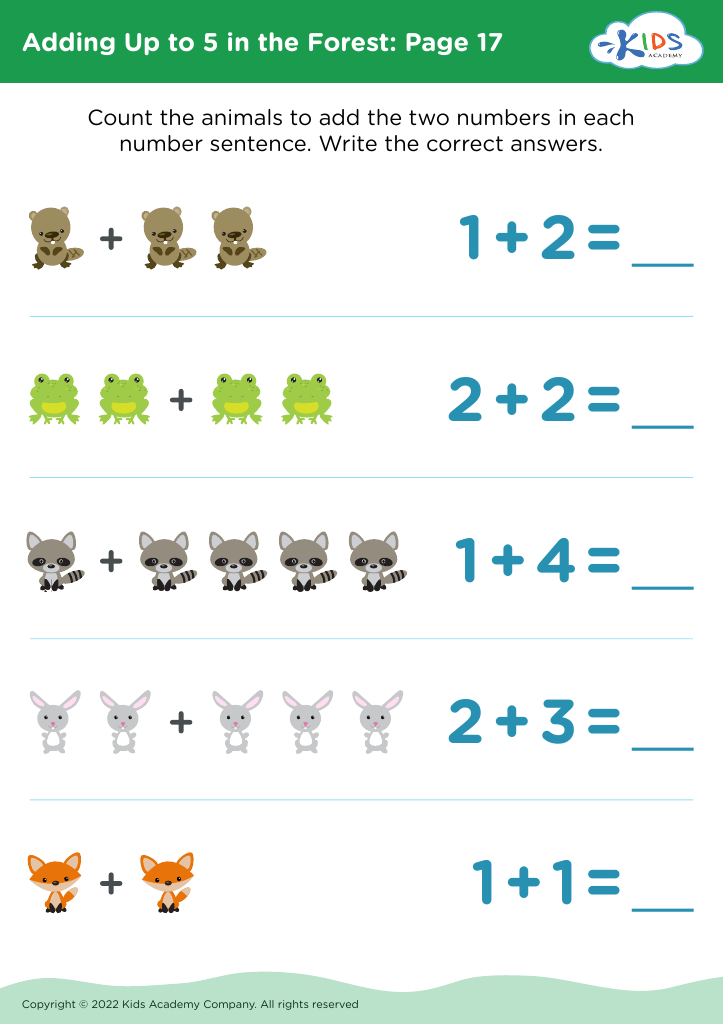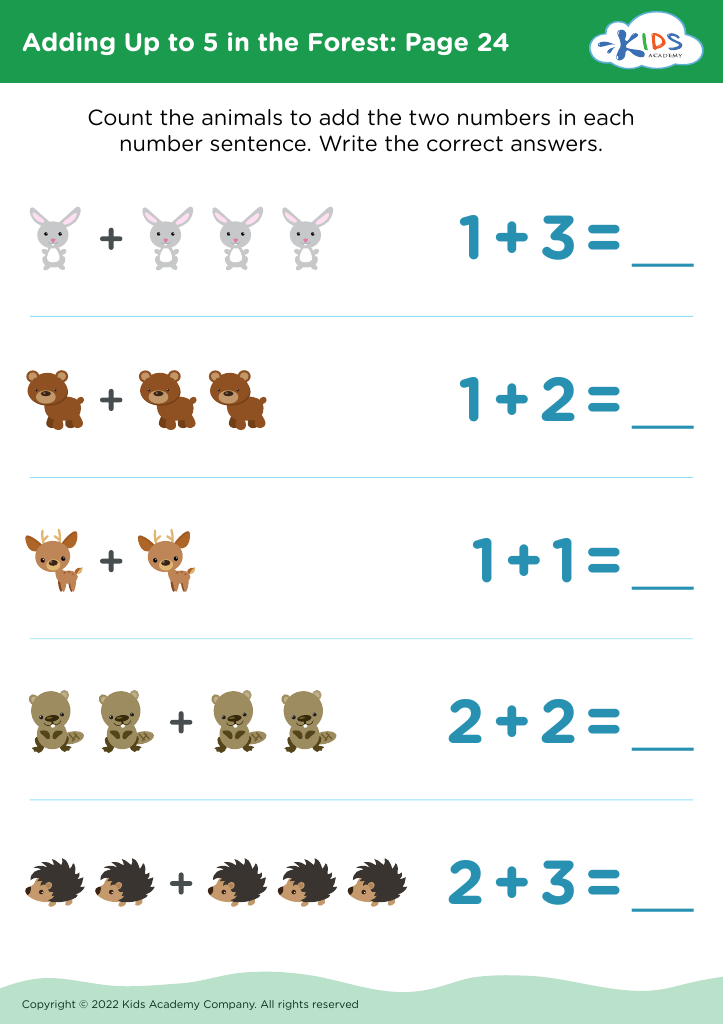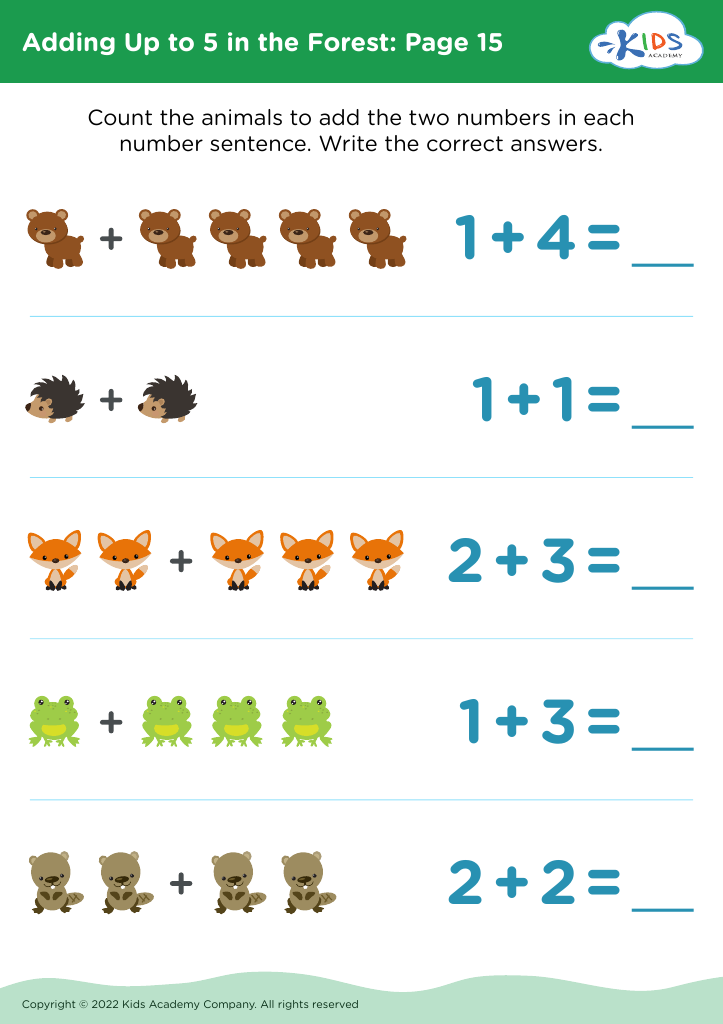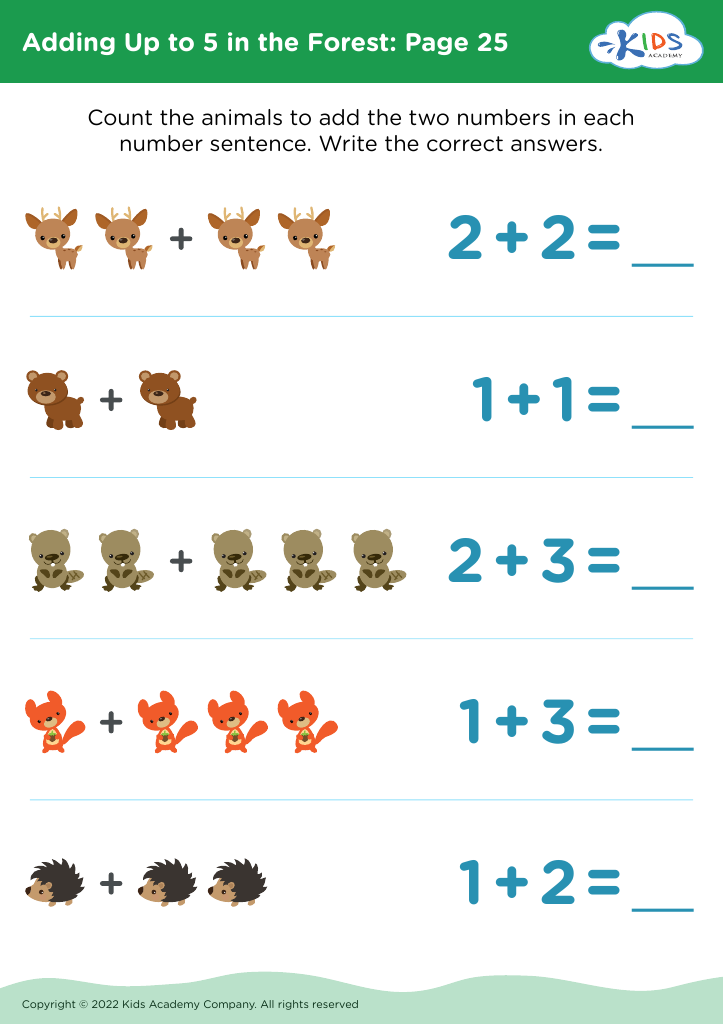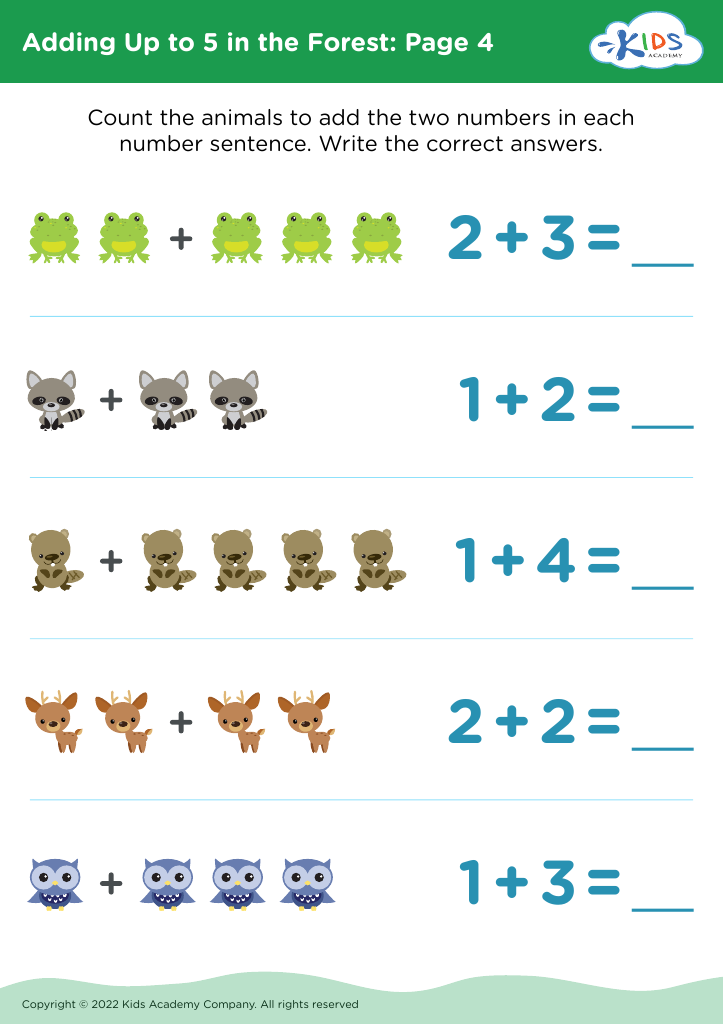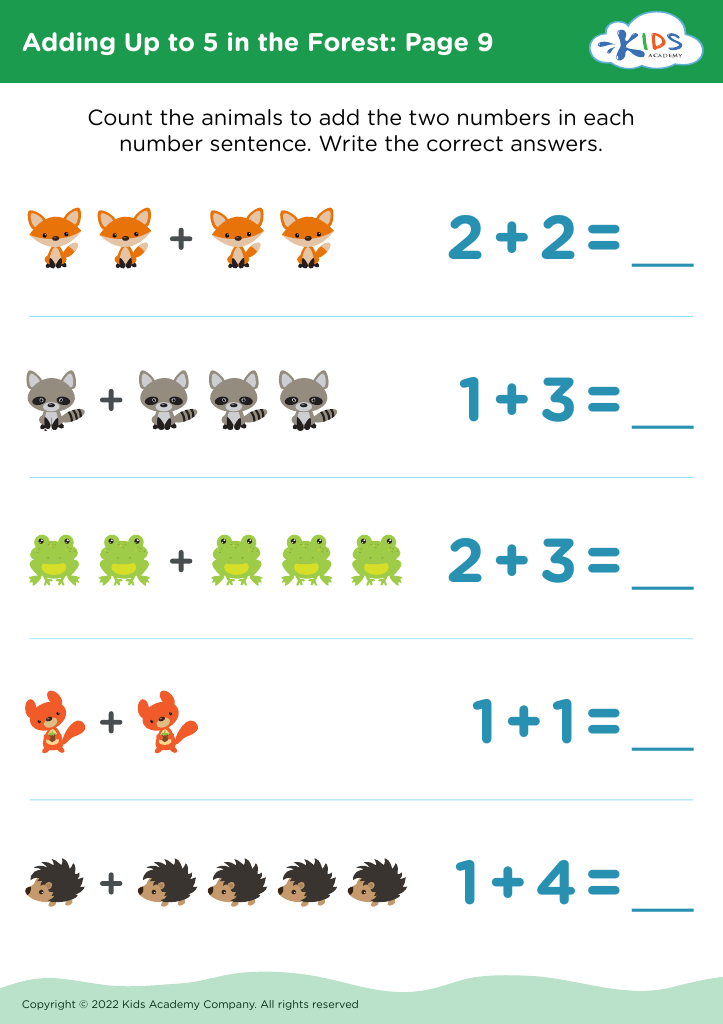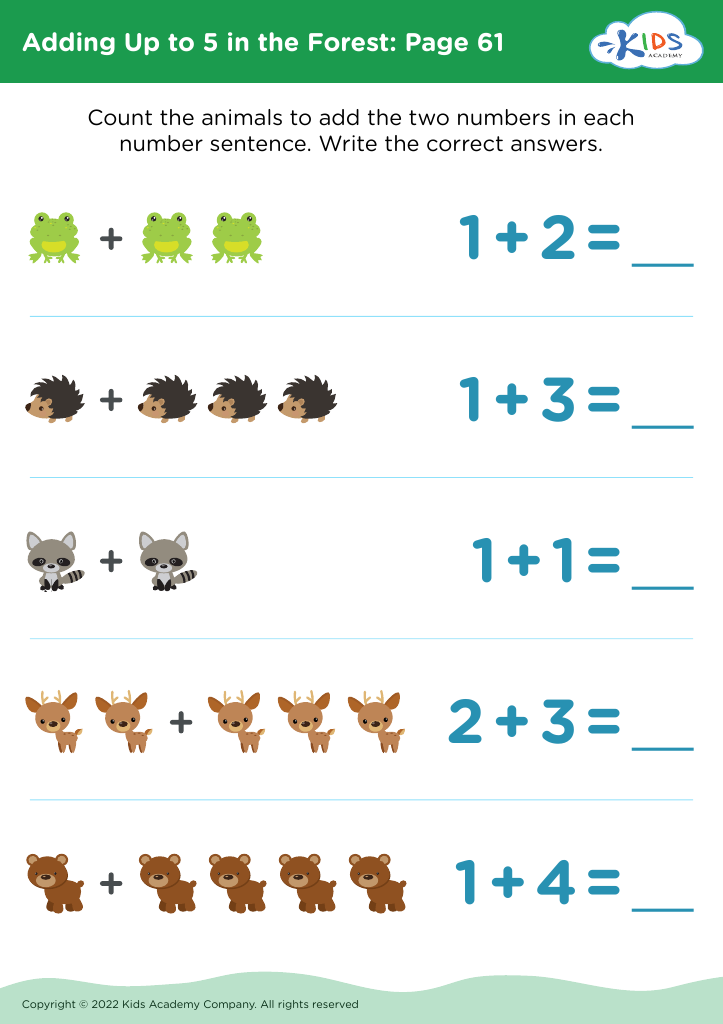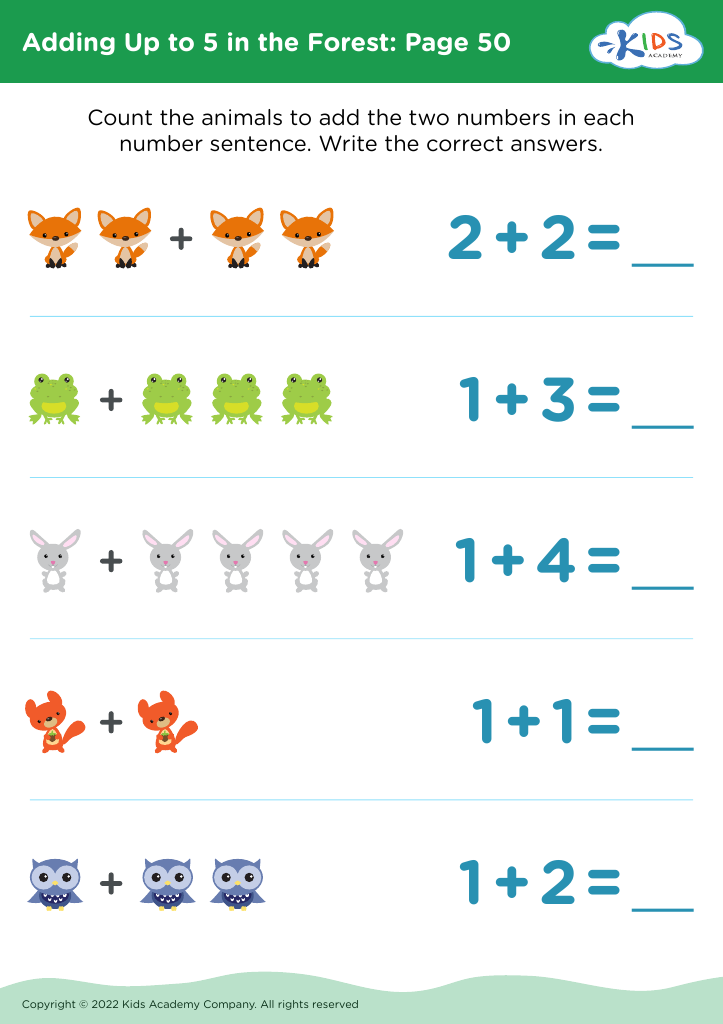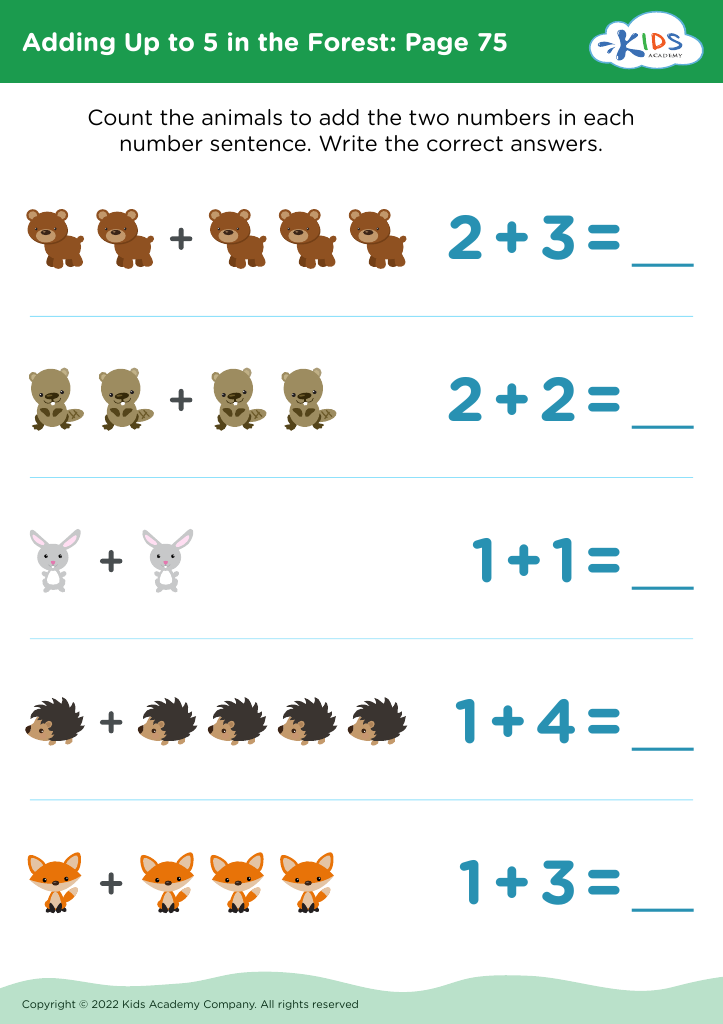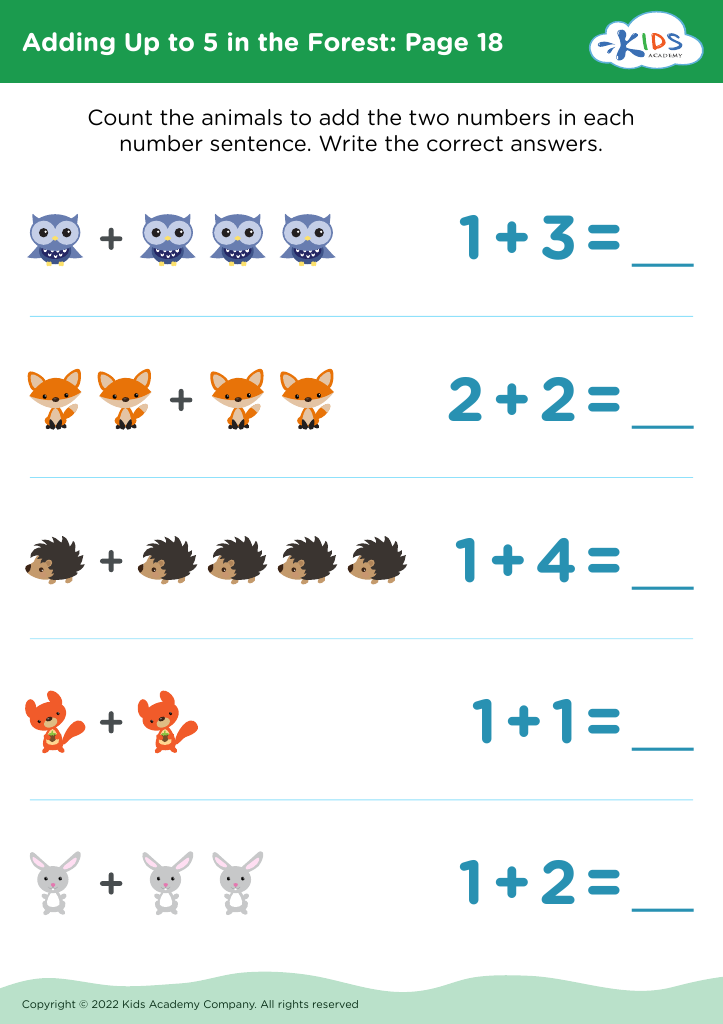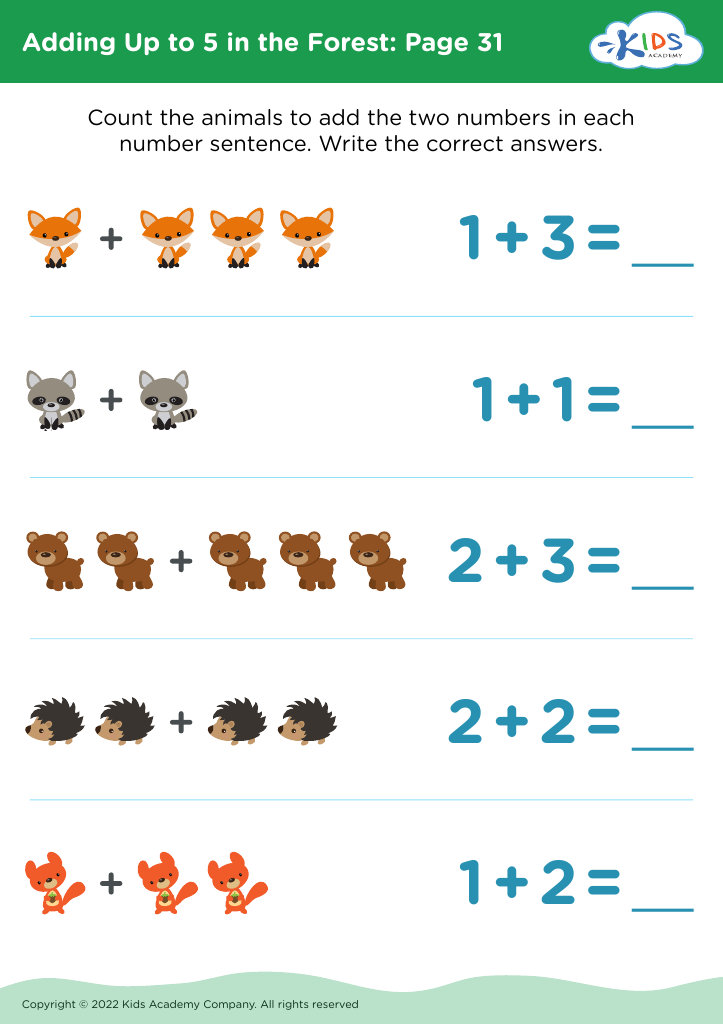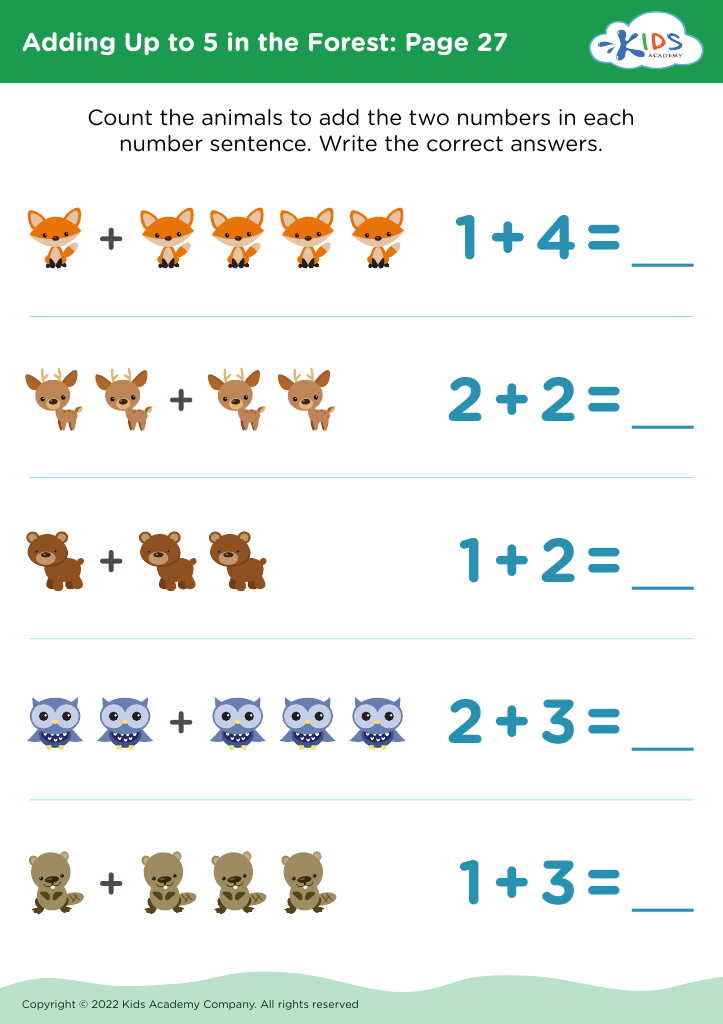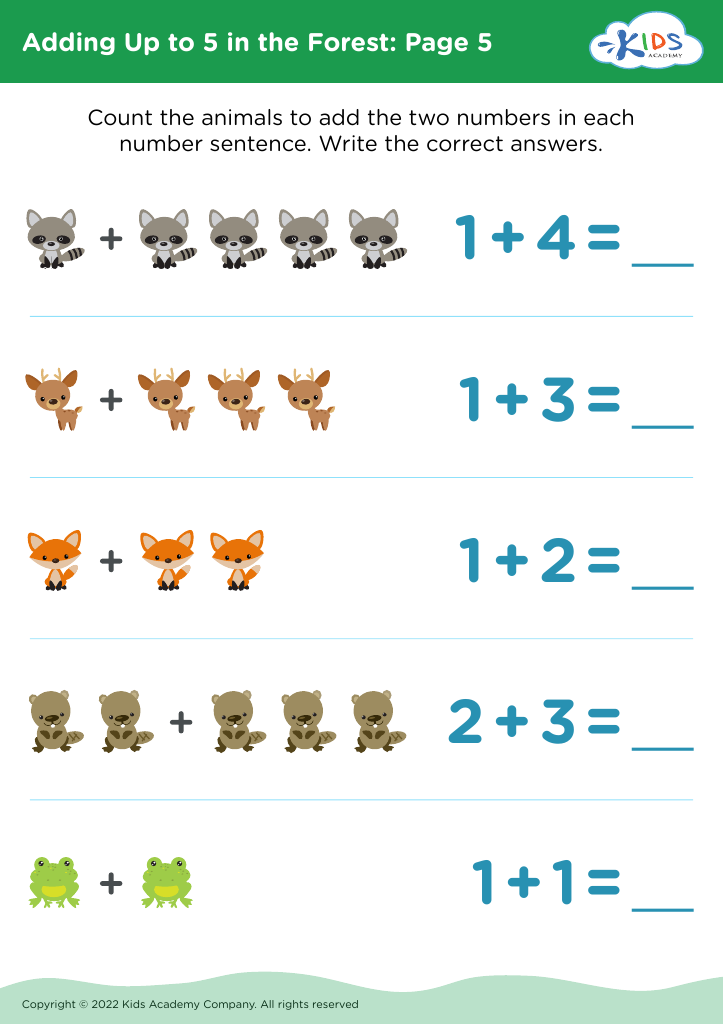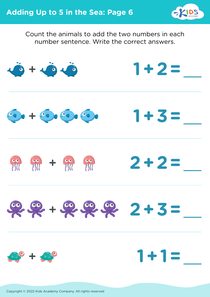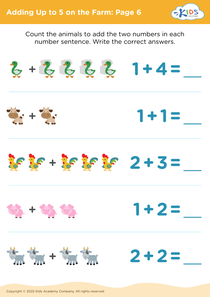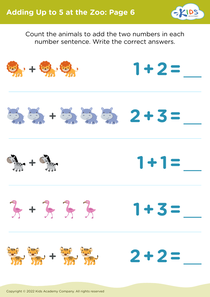Addition skills Adding in the Forest Worksheets for Ages 3-5
14 filtered results
-
From - To
Enhance your child's number skills with our "Addition Skills: Adding in the Forest" worksheets, designed specifically for ages 3-5. These engaging worksheets feature delightful forest-themed activities that make learning fun and interactive. Through colorful illustrations and simple exercises, young learners will practice basic addition, understand number relationships, and develop essential math confidence. Perfect for both classroom and at-home learning, each sheet offers a unique opportunity to reinforce counting and addition skills in an enjoyable way. Embrace the wonders of the forest and watch your child's math abilities flourish effortlessly!
Developing addition skills in young children aged 3-5 through engaging activities like “Adding in the Forest” is crucial for their early math development. These foundational skills set the stage for more complex mathematical concepts and promote cognitive development. First, addition helps children to grasp the concept of numbers and their relationships, which is essential for understanding higher-order math later in their education.
Integrating addition into a fun, thematic activity like "Adding in the Forest" makes learning more engaging and relatable for young learners. Such activities capture children’s imagination and attention, making the learning process enjoyable. When children are excited and interested, they are more likely to retain information and develop a positive attitude towards learning.
Furthermore, these skills contribute to critical thinking and problem-solving abilities. By learning how to combine groups of objects in a playful setting, children begin to develop logical reasoning skills and the ability to approach problems systematically. Addition also enhances fine motor skills and the ability to follow instructions, both of which are important for overall academic success.
Parents and teachers should prioritize the development of basic math skills like addition to ensure children build a strong educational foundation. Providing opportunities for practice in engaging contexts supports their growth and prepares them for future academic challenges.
